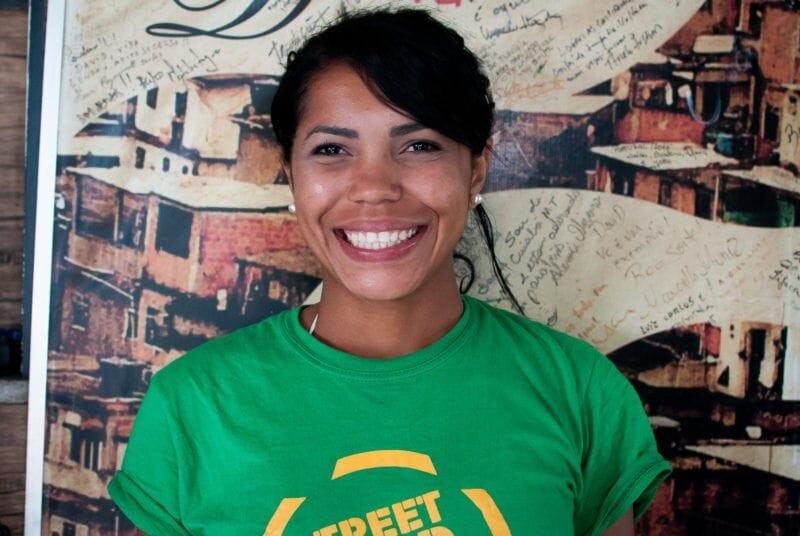News
Drika proves that dreams really can come true
29 March 2018

Drika - community coach and Street Child World Cup winner with Brazil © Street Child United
The countdown may be on for the 2018 World Cup in Russia, but there is an awful lot of football still to be played before then both on the domestic scene and abroad.
One tournament in particular stands out ahead of the big kick-off on 14 June - the third Street Child World Cup in Moscow.
Hosted in Russia, 24 countries will provide girls and boys teams and running side by side, a festival of arts and a Congress for their rights.
The youngsters involved will all have experienced life on the streets, homelessness or have been at risk on the streets. Most will sadly have known what it is to be seen and thought of as less than human. All are determined to change their lives and the lives of others.
People like Drika, who was once herself a young woman at risk but is now a leader, are testimony to the power that football can have when married with desire - and crucially - the opportunity, to make a change.
Drika was born and raised by her grandmother in Sergipe, Northern Brazil. She was one of 10 children, and the family had no electric lights, no TV, or stove. She had no toys or games. Football was the one thing that made her happy.
When she was 14, her grandmother died and she went to live with her mother and step-father in Rio de Janeiro, but was thrown out and ended up ‘couch-surfing’. She was eventually taken in by her aunt.
Things began to change for Drika when she started training with Favela Street Foundation in one of Rio’s largest favelas, Complexo da Penha.
Of the children living and working on the streets of Rio de Janeiro, the vast majority come from areas like Complexo. Every day the children and young people are at risk of exploitation and violence from the drug gangs and the police, where gunfights on the streets often break out.
Favela Street was chosen to represent Brazil at the Street Child World Cup Rio 2014, and, with Drika as captain, the team went all the way to the final, where they beat the Philippines 1-0.
As a result of the Street Child World Cup, Street Child United built the Safe Space pitch and programme in Complexo da Penha, with the support of GM Chevrolet. Drika was chosen as one of the community coaches, acting as an inspirational role model and leader for the children of the community.
She helps up to 300 children a year play sports and learn, reducing their risk of exploitation and abuse, developing their life skills and improving their education, training and employment opportunities.
Drika said: "I had to get used to the responsibility of being the role model to younger girls in the project and the leader to my teammates."
Her commitment and hard work has been recognised by sporting legends and leaders. In 2016, Drika was accepted on the Michael Johnson Positive Track leadership course in Dallas, Texas.
During the Rio 2016 Olympics she met with Wilfried Lemke, the former Special Advisor to the Secretary-General of the United Nations on sport for development and peace, to discuss how she uses sport to promote peace and inclusion.
"Now I have a job, giving a chance to at risk children," she added. "I have a big family that supports me and gives me advice, and provides me with opportunities to have a better life.”
If you would like to know more about the Street Child World Cup please click here.
Check out a special video with Drika here...
Share this article
